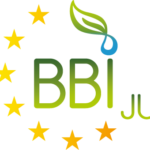The growing success of the bio-based economy is creating an unforeseen problem demand for suitable feedstocks which is proving increasingly difficult to meet. In addition, the majority that are being supplied are coming from primary agricultural production, such as starch, sugar and vegetable oils. This is creating competition between food and feed production, which may lead to changes in land use to try to meet demand. In addition, the lack of indigenous supply means that Europe depends on imports for more than 50 % of its raw material.
An ideal solution would be to use alternative waste streams to create feedstocks. Using heterogeneous biowaste – a mix of municipal/urban biowaste, sewage sludge, industrial residues, agricultural harvest residues, etc. This waste is currently a cause for concern from an environmental perspective, as it is difficult to treat. However, its heterogeneous nature makes it a challenging source, as does the fluctuating nature of its supply and availability.
The CAFIPLA project aims to square this circle, allowing it to address the issue of heterogeneous biowaste and increase the supply of suitable feedstocks. It will develop and optimise a breakthrough pre-treatment cascade process that converts these biowaste streams into high-quality intermediates for the bio-based industry. It uses two conversion platforms; the first – the Carboxylic Acid Platform (CAP) – converts the easily degradable fraction into Short Chain Carboxylic Acids (SCCAs) and nutrients. The second – the Fibre Recovery Platform (FRP) – extracts insoluble lignocellulosic fibres from the remaining fraction. The residue is converted to biogas and compost. This will provide an economically viable and environmentally friendly treatment technology to create biowaste-based feedstock from a currently under-valorised biowaste.
The overarching objective of the CAFIPLA project is to develop an integrated pre-treatment process to convert heterogeneous biowaste into building blocks for the bio-based economy. This should simultaneously help address the reliance on feedstock imports and the problem of dealing with this form of biowaste.
The CAFIPLA project also has a number of specific objectives within this. It will seek to:
In achieving its overall objectives, the CAFIPLA project will help to provide solutions to two pressing problems: the availability of locally-sourced feedstocks and the treatment of mixed biowaste. It will also make contributions to specific BBI JU KPIs through:
In addition, the CAFIPLA project will have a positive environmental impact. It will avoid devoting further land to sugar production by using an alternative source. This, in turn, will increase the sustainability of the organic waste treatment sector substantially. It will also increase overall resource efficiency, and – by using the heterogeneous biowaste fraction – reduce GHG emissions from municipal landfill in the form of nitrous oxide and methane gases.
Project website: https://www.cafipla.eu/



This project has received funding from the Bio Based Industries Joint Undertaking (JU) under grant agreement No 887115. The JU receives support from the European Union’s Horizon 2020 research and innovation programme and the Bio Based Industries Consortium.